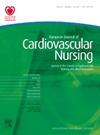评估人工智能生成的饮食计划和营养建议与心脏病患者指南的一致性
IF 2.9
3区 医学
Q2 CARDIAC & CARDIOVASCULAR SYSTEMS
引用次数: 0
摘要
导言:随着心脏营养学对个性化需求的不断增加,基于人工智能(AI)的工具越来越受欢迎。我们评估了人工智能生成的营养建议和饮食计划是否符合当前的饮食标准。目的 本研究旨在评估人工智能为心脏病患者创建的营养建议和饮食计划是否符合当前饮食指南推荐的热量摄入和宏量营养素比例。方法 使用选定的人工智能工具,根据特定心脏病诊断的饮食情况生成营养建议和饮食计划。分析包括评估热量含量和宏量营养素组成(蛋白质、脂肪、碳水化合物)与现行指南的比较。结果 分析表明,人工智能生成的大部分饮食计划和营养建议都符合饮食建议,热量含量和宏量营养素比例的符合率为 75%。不过,也发现了不符合建议的情况,这表明需要进一步调整人工智能算法。结论 人工智能工具在为心脏病患者制定个性化饮食计划方面显示出潜力,但需要优化才能完全符合当前的饮食指南。这项研究强调了将饮食知识融入人工智能工具设计过程的重要性,这对提供高质量的营养支持至关重要。本文章由计算机程序翻译,如有差异,请以英文原文为准。
Evaluation of the compliance of diet plans and nutritional advice generated by artificial intelligence with guidelines for cardiac patients
Introduction In response to the increasing demand for personalization in cardiac dietetics, tools based on artificial intelligence (AI) are gaining popularity. We assess the compliance of AI-generated nutritional advice and diet plans with current dietary standards. Objective The study aims to evaluate whether nutritional advice and diet plans created by AI for heart disease patients align with the recommended caloric intake and macronutrient ratios, based on current dietary guidelines. Methods Using selected AI tools, nutritional advice and diet plans were generated for defined dietary scenarios corresponding to specific cardiac diagnoses. The analysis included assessing the caloric content and macronutrient composition (protein, fat, carbohydrates) compared to current guidelines. Results The analysis showed that the majority of the AI-generated diet plans and nutritional advice were compliant with dietary recommendations, with an >75% compliance rate for caloric content and macronutrient ratios. However, instances of non-compliance were discovered, suggesting a need for further adjustment of AI algorithms. Conclusions AI tools demonstrate potential in creating personalized diet plans for cardiac patients but require optimization to fully meet current dietary guidelines. The study highlights the importance of integrating dietary knowledge into the design process of AI tools, which is crucial for providing high-quality nutritional support.
求助全文
通过发布文献求助,成功后即可免费获取论文全文。
去求助
来源期刊

European Journal of Cardiovascular Nursing
CARDIAC & CARDIOVASCULAR SYSTEMS-NURSING
CiteScore
5.10
自引率
10.30%
发文量
247
审稿时长
6-12 weeks
期刊介绍:
The peer-reviewed journal of the European Society of Cardiology’s Council on Cardiovascular Nursing and Allied Professions (CCNAP) covering the broad field of cardiovascular nursing including chronic and acute care, cardiac rehabilitation, primary and secondary prevention, heart failure, acute coronary syndromes, interventional cardiology, cardiac care, and vascular nursing.
 求助内容:
求助内容: 应助结果提醒方式:
应助结果提醒方式:


